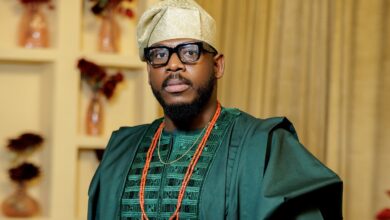Chimamanda Ngozi Adichie Speaks Out About Surrogacy: Challenging Fertility Stigma and Embracing Truth

In a recent interview, Nigerian literary icon Chimamanda Ngozi Adichie opened up about her decision to publicly reveal that her twins were born through a surrogate. The 47-year-old author, known for her award-winning works like Half of a Yellow Sun and Americanah, addressed the decision during a panel hosted by media personality Chude Jideonwo, explaining why she chose to challenge the societal stigma surrounding fertility.
Adichie, who is often reserved about her personal life, said that it was important for her to share the truth about her journey with surrogacy. “Why did I say that I had my twins via a surrogate? Well, because it’s true,” she remarked candidly. For the renowned author, the decision was not just about her own experience but also about the message it sent to other women facing fertility challenges.
“I think there’s so much shame around fertility,” Adichie continued. “Women are ashamed when they have fibroids or when they have trouble getting pregnant, and I don’t believe in that sort of shame.” She emphasized that women often carry a heavy burden of shame when it comes to fertility, whether they struggle to conceive, have issues with pregnancy, or face societal pressures to “get it right.” Adichie spoke out to challenge these expectations, asserting that it was time for society to stop imposing unrealistic standards on women, especially when it comes to something as deeply personal as having children.
One key aspect of her decision to be open about the surrogacy process was to avoid perpetuating unrealistic expectations. “People just went off with this thing about me, ‘She’s 47 and she had babies,'” she said, referencing the gossip that surrounded her age and the birth of her twins. Adichie made it clear that she did not want to contribute to the pressure that women in similar situations might face. “I felt as though there’d be other women who would then be pressured and be told, ‘Look, she’s 47 and she has twins; what about you?'”
The author’s decision to reveal the truth was a deliberate move to counteract the societal narrative that often overlooks the complexity of fertility and motherhood. She explained that the pressure to conform to idealized images of motherhood could have serious consequences for women who were struggling with their own fertility issues.
The conversation also touched on a moment during the interview when the interviewer remarked that Adichie “looked fantastic for someone who just had babies.” Adichie was quick to correct the narrative, choosing not to thank the interviewer, as the statement was based on a lie. “I wasn’t going to say thank you because that’s a lie,” she said, instead sharing the reality of how her twins came into the world.
For Adichie, this public disclosure was not just a personal statement but also a broader social commentary. “I don’t like to lie about things that can be consequential for other people,” she explained. By openly sharing her experience, Adichie hopes to challenge the harmful expectations that many women face and encourage greater transparency and understanding around the topic of fertility.
This brave step forward from one of Nigeria’s most influential authors highlights the importance of challenging the stigmas that often surround women’s bodies and reproductive choices. By sharing her truth, Adichie encourages others to do the same and to embrace the complexity and diversity of women’s experiences in motherhood.




